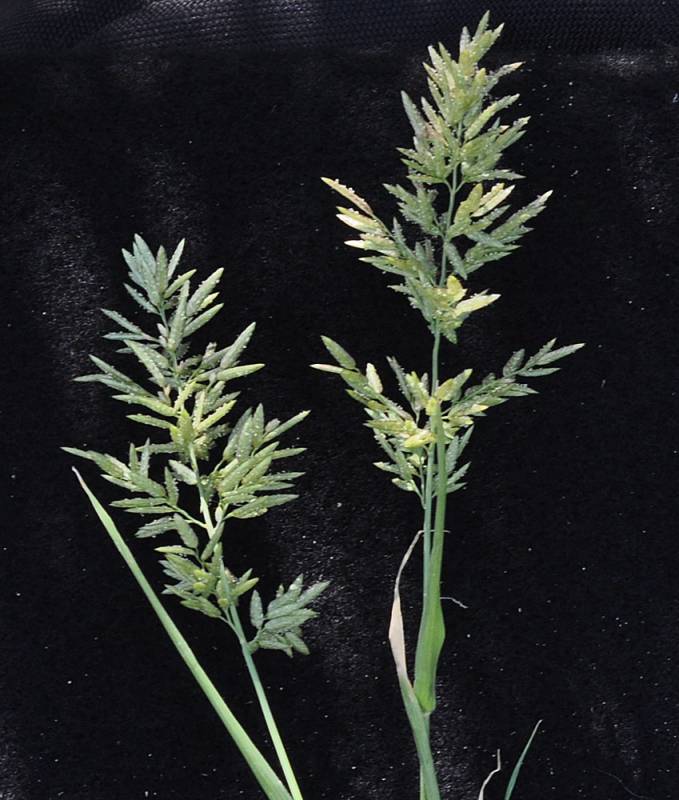Eragrostis cilianensis
Eragrostis lutescens
stinkgrass
six-weeks love grass
Sheaths open, glandular, the throat with hairs up to 2 mm. long;
ligules a fringe of straight hairs nearly 1 mm. long;
blades flat to folded, 2-5 mm. broad.
Inflorescence a condensed panicle 7-15 cm. long, tapered from the base upward;
spikelets ovate-oblong, up to 40-flowered, flattened, about 3 mm. broad;
glumes keeled, subequal, 2-2.5 mm. long, the first 1-nerved, the second 3-nerved;
lemmas awnless, with 3 prominent, non-converging nerves, strongly glandular on the keel.
Eragrostis cilianensis
Eragrostis lutescens
Occurring chiefly east of the Cascades crest in Washington; British Columbia to California, east across North America to the Atlantic Coast.
Occurring east of the Cascades crest in Washington; eastern Washington to California, east to Colorado and New Mexico.
- Local floras:
BC,
CA,
OR,
WA
- Local Web sites:
CalFlora,
CalPhotos,
Flora NW,
PNW Herbaria
WildflowerSearch
iNaturalist (observations)
USDA Plants Database
- LBJ Wildflower Center
- SEINet
- Plants of the World Online
- Encyclopedia of Life
- Wikipedia
- Google Image Search
- Local floras:
CA,
OR,
WA
- Local Web sites:
CalFlora,
CalPhotos,
Flora NW,
PNW Herbaria
WildflowerSearch
iNaturalist (observations)
USDA Plants Database
- LBJ Wildflower Center
- SEINet
- Plants of the World Online
- Encyclopedia of Life
- Wikipedia
- Google Image Search


